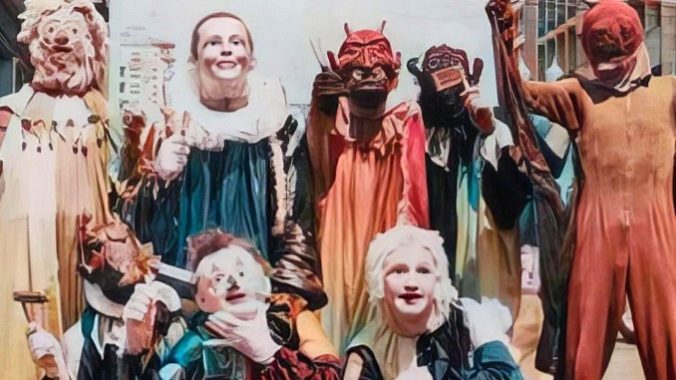Pictures of Ghosts Paints a Rich Portrait of a Brazilian City

A good personal essay, so thoroughly embedded in the author’s experiences, tends to require some broad exterior perspective or context to give readers a stronger reason to care. Pictures of Ghosts, director Kleber Mendonça Filho’s new documentary, starts with personal experiences: His upbringing in Recife, the capital of the Brazilian state Pernambuco, his memories of his mother, and of what the city was versus what it has become throughout his 55 years. You’re forgiven for assuming Filho is his own subject. He is, after all, the inception of the film, and without him, there’s no story to tell.
But without Recife’s cycle of development and decline, and a culture once-upon-a-time friendly to arthouse cinemas, there would be no Filho, either. Through his wryly narrated anecdotes, he becomes a conduit for a larger story. Pictures of Ghosts is about him, and in so being, it’s also about the process by which cities are unintentionally brought to disrepair through modernization. And between these two axes, it’s also about Brazil’s growing pains from the 1960s to the 2020s. Filho is self-reflective, not self-obsessed, and his clear-eyed stance is crucial to the anti-vanity he brings to his examination of his childhood home and youthful obsession.
Pictures of Ghosts is told in three chapters, with the first, “The Setubal Apartment,” serving as a prologue to the other two. As far as it seems to concern Filho, the apartment he grew up in may as well be ground zero for the slow-rolling gentrification inexorably swallowing up the city beyond its doors; the stylish, spacious flat feels representative of the social forces driving the mass-remodeling of Recife’s deteriorating neighborhoods. Whether Filho considers his former home in these terms is less clear, but his thesis hinges on the idea that one must necessarily focus on where art comes from in order to appreciate where, and how, art is exhibited. Extrapolating a degree of responsibility from the relationship Filho draws between his home and Recife feels reasonable.
He provides no further elaboration, instead staying at the movie’s edges, guiding the narrative along. It’s revealing to learn that Filho got his start making movies in an apartment that practically constitutes a micro-kingdom, secluded away from the rest of the world; it tells us that his cinema is rooted in primal, formative moments of his life, and that despite the semi-sequestration, he remains to this day committed to film’s collaborative characteristic. Filho’s neighbors partook in his projects as extras, a practice he’s kept all the way through Bacurau, the weird Western he co-directed with Juliano Dornelles in 2019.
-

-

-

-

-

-

-

-

-

-

-

-

-

-

-

-

-

-

-

-

-

-

-

-

-

-

-

-

-

-

-

-

-

-

-

-

-

-

-

-








































